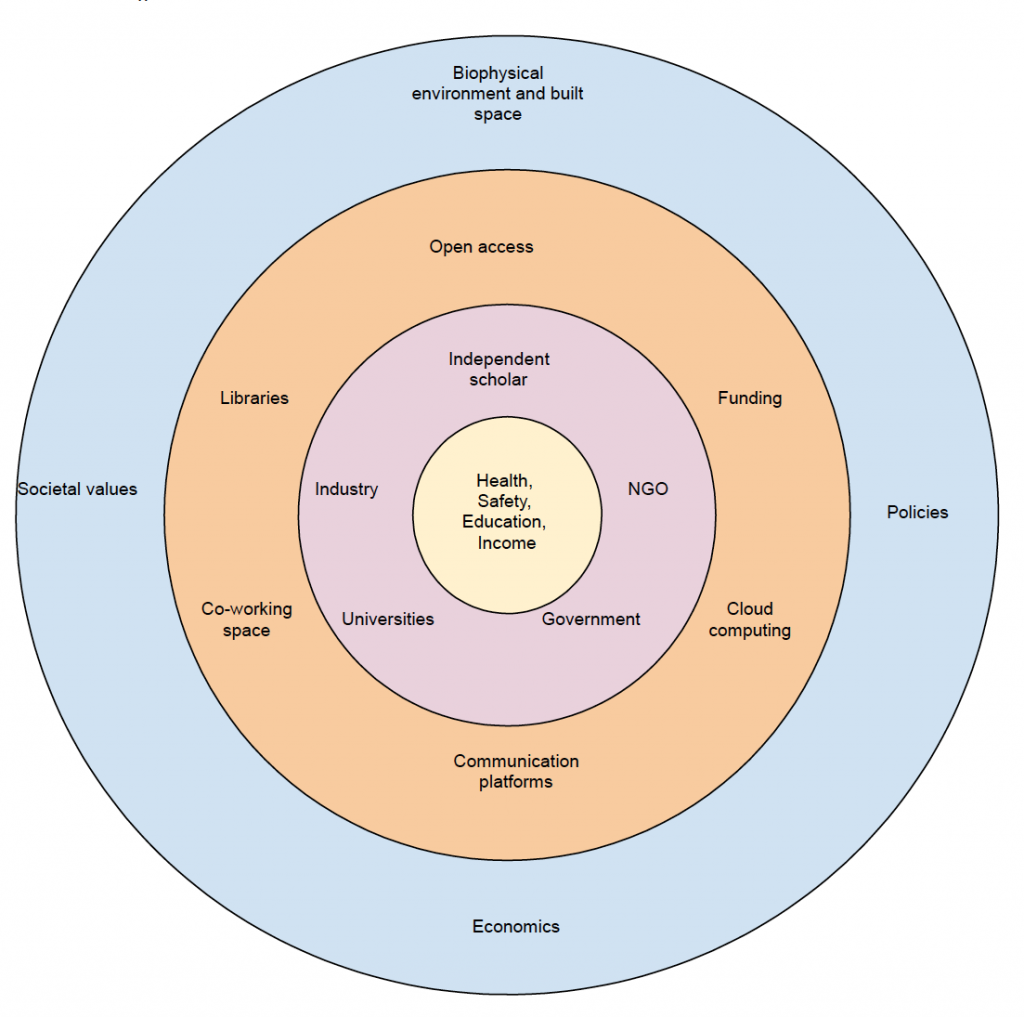Ronin Institute Research Scholars Alex Lancaster, Anne Thessen, and Arika Virapongse have written an excellent article presenting a new perspective on the structure of academia. They argue in favor of abandoning the idea of the career “pipeline” in favor of an “ecosystem” metaphor that allows for a diversity of models of what a “career” looks like and what it means to contribute to the scientific endeavor.
You should read the whole whole thing. It has now been published in F1000 Research ready for open peer-review, but here is the core of the model:
We propose an ecosystem as a conceptual model that is relevant both to the training of a scientist and their role as a professional (see figure below). The two most inner circles in the Figure depict the basic necessities, training, and professionalism of science. Here, traditional scientific labs may still have a role, but the networks of peer-to-peer collaborators that span both within and outside of institutions are emphasized. The two outermost circles are the impetus behind the changing context of science today. It is becoming more evident that a new systems-based approach is needed to allow science to adapt more quickly to the complex socio-political and biophysical context of today (the outermost circle). There are, however, now new resources, tools, and infrastructure (courtesy of STEM advances), such as lab space, journal access, and high-performance computing, either publicly available, or available for rent, that allow science to thrive outside of traditional institutions (the orange, next outermost circle). In addition, bottom-up changes are already being driven by early career scientists themselves in many different ways.
The article goes in depth into the limitations of the pipeline model and the inadequacies of the solutions that are typically proposed from within that paradigm. It treats the ecosystem model in even greater depth, identifying and proposing new solutions that could be implemented and some that already are, and ends with a call to rewrite the cultural narrative around the practice of science.
Changing the cultures of research careers and the scientific enterprise is an experiment itself: actively practicing new a scientific culture can encourage others to be even bolder in their experimentation. The existing institutions that are tasked with supporting basic curiosity-driven inquiry need to be reformed and strengthened, but that alone is insufficient. We must build new structures that are informed by an ecosystem view from conception. The beauty is that science can be made available to everyone and our technologies are making it increasingly so. It is not a scarce resource: we should build our new ecosystem to recognize this truth.
This post is a perspective of the author, and does not necessarily reflect the views of the Ronin Institute.


